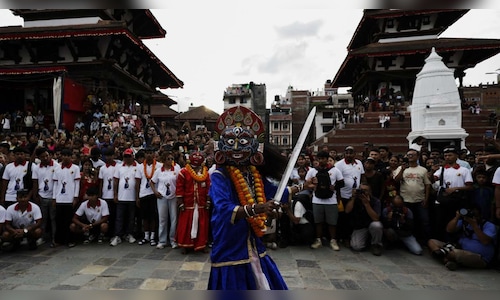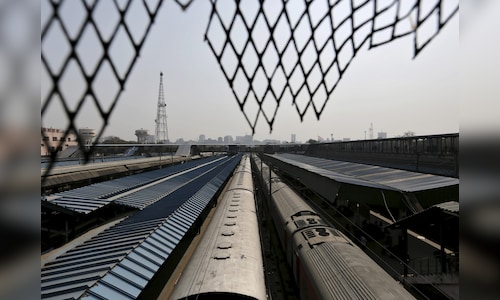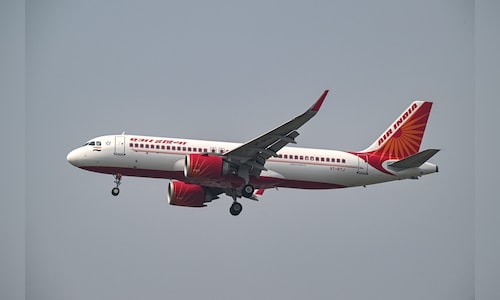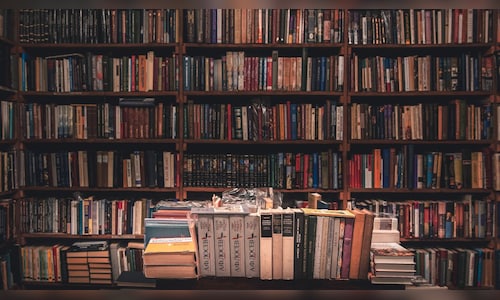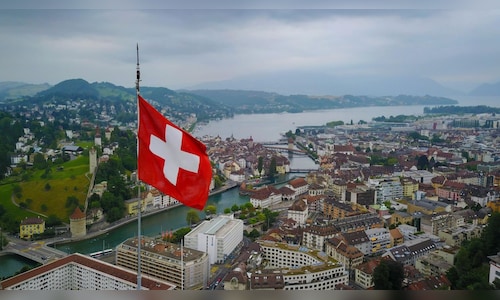As part of the centuries-old tradition, chariots bearing the living deities Kumari, Bhairav and Ganesh were pulled through Hanumandhoka, Basantapur and surrounding areas. During a special ceremony, President Paudel worshipped Goddess Kumari and received her blessings, in keeping with a practice that has been followed for generations.
The eight-day festival begins annually on Bhadra Shukla Chaturdashi according to the lunar calendar. Two days prior to its opening, a towering wooden pole known as “Indradhwoja”, adorned with flags, are erected at Hanumandhoka.
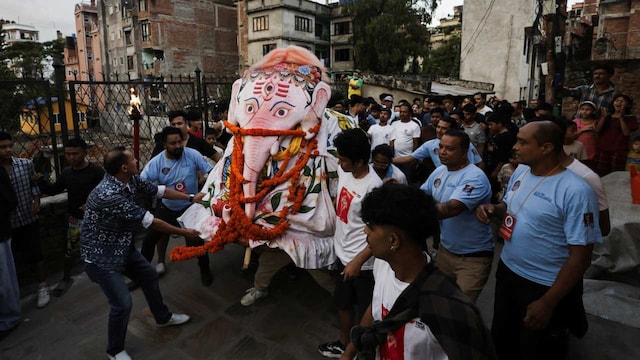
Most closely associated with Kathmandu, Indra Jatra is celebrated in Lalitpur, Bhaktapur, Dhulikhel and Dolakha.
Sunday (September 7) marks the festival’s second day, ‘Yenya Punhi’, when members of the Newar community gather to enjoy a traditional meal of beaten rice, meat, eggs, beans and bara, a fried bread made from black lentil.
Though most closely associated with Kathmandu, Indra Jatra is celebrated in Lalitpur, Bhaktapur, Dhulikhel and Dolakha. Across these districts, the event showcases a variety of cultural performances, including the Mahakali, Lakhe, Pulukisi and Bhakku dances, while the Dasavatar play is staged at Basantapur and the Hanumandhoka complex.
Legend has it that the festival commemorates an incident when Indra descended upon Kathmandu to collect the flower ‘Parijat’ for his mother, Dakini. Mistaken for a thief by farmers, he was tied to a tree along with his elephant Erawat. Upon learning of the error, the farmers released him on the promise that he would bless them with rainfall for a good harvest. The Pulukisi figure carried through the streets during the festival symbolises Indra’s elephant.
Alongside the sacred rituals and masked dances, processions of chariots and cultural songs bring vibrancy to Kathmandu valley all through the week.
Coinciding with Indra Jatra, the Nepal Tourism Board and Nepal Art Council have launched a three-week Nepal Art and Culture Festival 2025 to draw visitors by linking heritage with tourism.
President Paudel formally inaugurated the cultural programme on Friday. The festival will feature street performances, culinary fairs, music concerts and art exhibitions aimed at attracting both domestic and international tourists.


